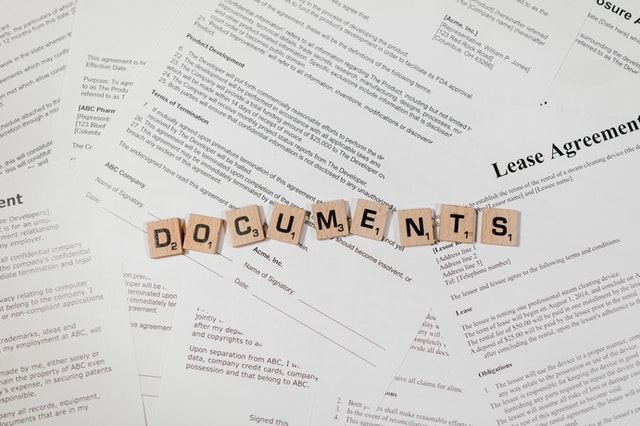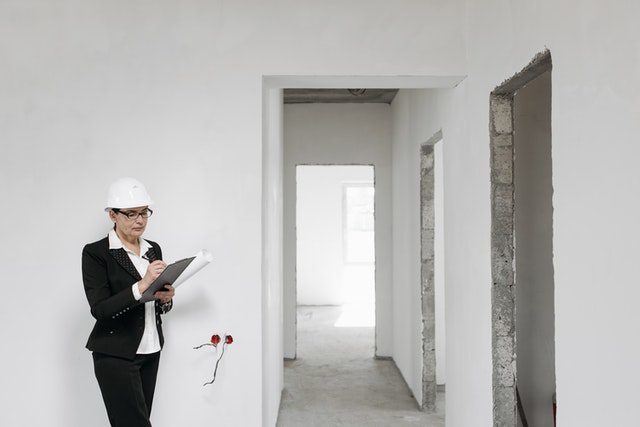Particularly for first-time buyers, the stress of finding your ideal and perfect home is a hard enough task, but eventually after weeks and months of searching you are ready to put an offer into your dream home.
Then you find out that your offer has been rejected, and naturally all that’s floating through your head is Why, what did I do wrong?
Rejected offers happen frequently and it can cause homebuyers to feel disappointed and can crush the hope of being a homeowner.
However, just because your offer has been rejected doesn’t mean that you have to give up, it’s an opportunity to come back stronger.
The first step to doing this is to understand why your offer was rejected, and usually, it’s a reason involving the money, as well as discovering what options you have from that point onwards.
So, continue reading this blog post to delve deeper into answering the question: Why Was My Offer Rejected and How to Deal with a Rejected Offer?

Naturally, we all want to save some cash, especially when it comes to purchasing a home as it’s a huge investment. However, just by trying to pocket a little change could be the reason why your offer was rejected.
🔑 Key Fact: It’s important to recognize that in most states, sellers are not obligated to respond to an offer that is lower than their listed price, however an estate agent has to deliver the offer to the seller.
Although you may view your low offer as a strategic route to get the home of your dreams, the seller on the other hand can view your lowball offer as insulting and devaluing their home.
Also, if the property has just been listed, the seller may feel it’s too early to look at offers lower than their original asking price, especially if they have received offers that are around or exceed their asking price.
🧠 Bear in Mind: The seller has invested a lot of money, as well as time into building and decorating their home. So, naturally, they want a good deal and want to sell to someone who is going to appreciate the effort they put in.
Believe it or not, you can cause your offer to be rejected if your offer price was too high. Offers that drastically exceed the offer price sends red flags to your seller.
Generally, this is because a loan provider or mortgage lender will require an appraisal, meaning they will want to valuate the property to see if the loan amount matches up to the value of the house. If it doesn’t, the loan will be turned down which will potentially lead to a sale falling through.
However, an offer that exceeds the asking price will usually only be accepted if a buyer is willing to buy the property in cash.
👀 Delve Deeper: Are you considering buying a property and paying in cash? Take a look at our blog posts that explore the benefits of buying a property in cash
There will be multiple different buyers looking at the same house up for sale, and obviously, this is something that is out of each seller's control. You should always have a few homes in mind when you are searching for somewhere to live.
Another buyer's offer may simply be better than another home buyer, for instance, it may have fewer contingencies, or it may just list better terms than what you’re able to provide.
🔥 Hot Tip: If you find your offer is declined because the seller accepted a better offer, you should arrange a meeting with your real estate agent to discuss what changes you can make next time to make a stronger offer.
Your hired agent should get in contact with the listing agent to find out if there are any underlying specific requirements that you need to reach.
📝Key Information: Some listing agents will include hints under the agent's remarks section of the Multiple Listing Service- MLS.
Any concerns that you or your agent have should be written into your offer. If your seller requires a long escrow you may be able to offer longer closing date, or you may be able to speed up the closing process if a long escrow is not required.
If you want to delve deeper into the closing process, from the view of either a seller or the buyer, take a look at our blog post.
Other simple requirements may be missed, for example, a seller may want a pre-approval letter from your lender. Most sellers will request a letter; naturally, they will want some proof and assurance that you have been accepted for financing.
💡Extra Tip: Pre-approval loans can also benefit a buyer. It will provide you with an accurate idea of your budget for a property- that way you won’t look at properties or make offers on properties that do not fit inside your price range.
Furthermore, a seller may want a buyer to make an earnest money deposit. Look out for hints as some of these parameters will not be spelled out.
Variable Commission Structure or Dual-Rate Commission Structure is when a listing company sets up an agreement stating that if the seller's listing agent also ends up working with the buyer, then the agent will lower their commission as they’re earning from both the seller and buyer.
Typically, a listing agent will charge the traditional real estate commission figure, but they may agree to lower the percentage of commission if they can represent the two sides of the transaction. This is commonly referred to as variable rate.
Again, talk to your agent and check through the MLS to figure out if the commission is variable. If it is, the agent may be willing to match the terms for you to get the house.

Another common reason to consider when questioning why was my offer rejected- is if you raise a load of contingencies.
Contingencies raise alarms for sellers as it displays some sort of hesitancy and wariness. Having too many ‘what-if’ clauses within your written agreement are clearly to safeguard yourself as the buyer from any unexpected information that arises through the process, but always consider what will be going through the seller's head.
Before you write down each contingency be sure that is completely necessary before you send off your finalized purchase offer.
The reasons for your offer being rejected sometimes has nothing to do with your offer- and it could be a personal reason. For instance, the seller may believe that you are not a suitable fit for their home, maybe it holds some form of sentimental value to them.
In multiple-offer situations, it will reflect poorly on you as the buyer, if your agent irritates the seller's agent. Sellers are likely to choose a buyer whom their agent suggests.
🚩Be Aware: A listing agent may present two offers of the same value to the seller, and the listing agent can say I prefer ‘buyer one’s agent professionalism over buyer two’s agent’.
If your offer is rejected, it leaves you with two options:
If you choose to put in a new offer for the property, it's paramount that you spend time analyzing your previous offer letter. Did you put forward an offer that was too low or high or did you raise too many contingencies that scared your seller, or was it something else?
Understanding where you could have potentially gone wrong is the first and most important step an individual can take to gather some idea as to why the letter was rejected.
After you’ve determined the possible reasons, you should figure out how you can change those elements in your letter.
Contemplate asking yourself a few questions such as:
Once you’ve asked yourself the questions below, it's now time to take a look at your original letter and make the appropriate adjustments.
🧠Remember: Always be realistic, do not go over the top. You have to adhere to the information you stated in your offer letter.
You could go the extra mile and add an anecdotal atter explaining why you believe you are the perfect owner for their home. Think about adding a preapproval letter, if you are seeking a loan or mortgage to buy the property, this will provide a sense of security for the seller- the last thing they want is fallen through offers.
These tips are helpful, but they are not guaranteed to change the rejected offer to one that’s accepted.
Offers can sometimes be rejected and the seller can propose a counteroffer. If this is the case, you should go over the new offer with your agent to figure out if the new terms are suitable for you.
If you find that the offer is unsuitable, then you can move on from the offer and continue your search elsewhere, or you can continue to negotiate with the seller to come to a compromise that works for both parties.
Stay in contact with your estate agent to make sure you are updated on all changes to your contract.
Naturally, any homebuyer will feel disheartened if their offer is rejected, as the house you loved is slipping through your fingers, but always remember there is more than one house up for sale.
Rejection happens frequently in competitive markets, and it’s just part of the journey of finding a new home.
There are several reasons why an offer can be rejected, from lowball offers, contingencies to personal reasons.
A buyer needs to reflect on what mistakes they could have made in their offer letters for you to make suitable changes for future offers.
We have laid out some tips which can help you to deal with a rejected offer, as well as how to approach counter offers, however, keep in mind that these tips are not certain to alter the seller's decision, but they can be helpful.
But follow these three steps after your rejected offer and you’ll only come back stronger:
Selling a home requires a lot of work and a stressful ordeal, from the time and effort put in to prepare your house, to the endless amount of cleaning, repairs, and upgrades- it's a worrying phase for most home sellers.
Once your house is tidied, you still have to search and find an excellent real estate agent, or you may decide not to use an agent at all.
There are also worries about how long it will take to reach a sale, as well as the additional costs linked with selling your house and the ever-hanging doom of a sale falling through at the last minute.
The problems listed above are just a small list of the reasons why a seller would look for alternative solutions to a sale on the housing market.
But fortunately, there's an option that can help alleviate some of your stresses. There are several benefits of accepting a cash offer on the house, such as saving time and cutting expenditures.
If you're still wary of accepting a cash offer and only feel comfortable with traditional sales, continue reading through this article, and we'll explore exactly what a cash offer is, as well as the main benefits of accepting a cash offer on a house.
A cash house buyer or a cash offer is a sale where a buyer offers the seller the total cost of the house outright without using a source of financing such as a loan or mortgage. Having the funds in full can speed up the overall sale process significantly.
You'll be able to eliminate hurdles like estate agencies or viewings and cut out the chances of delays and complications that surround conventional property sales.
🔑Key Fact: Usually, a cash buyer will be a house-buying agency or company that works alongside property developers who plan to purchase the property with the intention of renovation.
Homebuyers who propose a cash offer will not have to stress about getting through the finance sectors, like applying for mortgages or loans, and this is one of the top reasons that a home offer fails- and a seller's biggest nightmare.
🧠Remember: Genuine cash buyers will already have instant access to the funds required to buy your home, but whether your cash offer comes from a company or an individual, you must request proof that the finances are readily available to cover the cost.
While it's true that all home sales will result in an exchange of money between the buyer and seller, cash offers help to remove a whole load of obstacles that arise from traditional home sales, and cash sales are becoming increasingly more popular.

Every seller's reason for selling their home is uniquely different. However, there are some situations where a seller will reap the benefits of accepting a cash offer on a house, and it's usually the best possible option. Here are some reasons where cash only offers are welcomed:
Homeowners at risk of facing foreclosure will find themselves trying to solve their problems.
Due to financial circumstances, this means the homeowner can no longer afford to make payments on their homes, such as mortgages or loans, and will feel as though they are running out of options to regain some form of stability.
While there are other options they can take, such as evictions, short sales, or bankruptcy, these can have a detrimental impact on the owner's credit score, making it hard for them to seek loans in years to come.
However, a simple cash sale provides an easy way out without harming your credit score. Accepting a cash offer on a property at risk of foreclosure allows the homeowner to avoid eviction, avoid a lowered credit score, and will enable them to move on to the next stage of their life.
💡Delve Deeper: Properties who have federal tax liens often look to sell their house to cash buyers.
The amount of money an individual spends to keep their home to a good standard or well-maintained can sometimes prove to be a lot to handle for some homeowners.
Whether your roof needs replacing or your foundation is cracking, repairing your home can cost you tens of thousands of dollars.
Traditional sales can make it difficult to sell houses that need major repairs, for example, houses with infestations such as mold.
💡Key Insight: Lending companies or mortgage companies often refuse to issue loans for properties that are damaged or in need of major repairs.
Cash buyers do not have to face these issues and can sell their houses as-is or, more commonly known as fixer-uppers, to people willing to pay upfront. This means sellers don't have to stress finding the cash to fix repairs and enjoy a speedy closing.
Changes to Life
Suppose homeowners experience key changes to their life, such as retirement, new jobs, personal illnesses, deaths in their family, or marriage or divorce. In that case, they may find themselves wanting to buy a new house or change the area they live in quickly.
For example, if you've retired and realized your house is too big and want to downsize, or if a family member has fallen sick, you may need to move closer to that ill relative.
Or, if you are undergoing a divorce, you may need to find somewhere else to live due to contention, and these are all significant life changes.
Such changes may require you to sell your house immediately without any extra stress, just a simple solution to a problem that can be solved quickly.
As mentioned, cash sales vary from conventional home sales in numerous ways. Here we will have a lop at the top 15 benefits of accepting a cash offer on a house.
The closing process is relatively long, and understanding what is required from a seller and buyer is just one aspect that can speed up the process. Furthermore, another element that speeds up your closing is processing a cash sale. Cash sales cut down the time taken to finalize the sale from start to end. Usually, applying and having your mortgage loan accepted is the part that takes up a lot of time.
For sales to be authenticated, a mortgage needs to be underwritten. The process to underwrite a loan can take between 30 to 60 days, which gives a wide window for anything to change.
For instance, your financial status could change dramatically. If there are noticeable changes between pre-approval and loan finalization, the mortgage lender could terminate the loan, causing the deal to fall through.
🔄Roundup: As cash sales are not reliant on mortgage underwriting, sellers can cut the chances of a deal falling through at the last minute.
An appraisal is usually used to figure out the home's value. It aims to cut down the financial risk imposed on a mortgage lender and allows the lender to determine whether the house value is worth the loan amount.
Once the appraisal is completed and the value comes in low, mortgage lenders could decide to back out of finances the sale on the home and therefore is another reason why home sales fail.
Unlike traditional sales, appraisals are unnecessary with cash offers as a mortgage lender is not involved in the process and helps to eliminate another hurdle.
If you sell your house to an all-cash buyer, you don't have to worry about marketing your home, and there are many organizations such as real estate companies to intelligent real estate individuals that will help you along the way.
As the seller usually scouts around to find an all-cash buyer, this will cut out listing your house with a real estate company, advertising, and keeping up with back and forth messages on a real estate site.
✅Tip: Just because you are not marketing your house, don't think you won't get a fair price for your home.
Staging your house to show its best features can take hours to perfect and contributes to the stress of selling your home. Again, just like marketing, cash sales alleviate the stress of taking multiple pictures of your home.
Cash-buyers are less likely to want to attend a viewing; usually, this is because they intend to buy the house to renovate it. They would much rather have a small personal showing to view the basic elements of the house.

There are so many stages that increase your stress levels when selling a house. Whether it be cleaning, repairing, upgrading, or finding an agent, sorting inspections and appraisals, as well as keeping your home in immaculate conditions for viewings, there's definitely a lot to handle.
Cash sales speed up the process immensely, so it will reduce some of the stresses that crop up when selling your house.
Essentially, a seller is looking for a deal to close quickly and be paid as soon as possible. That's why a cash offer cuts down on any risks of a deal falling through.
If a seller is presented with a buyer who has the money to pay upfront and a buyer who needs to seek financing- naturally, the seller will pick the buyer that proposes fewer risks.
👀Insight: Home sellers will usually go with a cash offer over a financed buyer- even if the cash offer is lower than the original asking price.
With conventional sales, an inspection usually takes place, and this is where attention to any damages that need to be repaired are highlighted.
At this point, the seller will be expected to pay out to fix any problems brought to their attention. The seller can also lower the asking price to reflect the repair work in some cases.
Cash sales allow you to sell your house as-is, so you will not be subjected to inspections meaning the money will be saved on any upgrades and repairs.
If you are facing divorce and need to relocate, or maybe your house is at risk of foreclosure, accepting a cash sale on your house will allow you to quickly get out of a difficult situation.
These situations can cause a lot of stress, but with a cash sale, you won't have to wait for mortgages or loans to be accepted; you can sell your house, receive the cash and move on to your next step in life.

Flicking through endless paperwork can be confusing and hard to understand.
Reading, initialing, and signing all that paperwork can be overwhelming, and ensuring you understand everything detailed in the paperwork entirely is essential, and a small mistake can create huge problems.
A cash buyer who is reputable and can prove they have the funds will sort out paperwork and closing information for you.
📋Don't Forget: You should always check reputable cash buyer's reviews or references, as well as proof of funds, before you move forward with a cash sale.
Selling your house to a cash buyer will allow you to keep more money in your pocket as you will not have to pay out a realtor or real estate agent.
However, be sure to watch out for any hidden fees that a cash buyer may sneakily request.
✨Extra Fact: Real estate agents fees usually take around 6% of your home's final sale price.
Having to sit down a negotiate and going back and forth with a buyer can be an unpleasant and draining process of traditional house sales.
Cash offers allow you to avoid the negotiation process altogether. You'll receive a fixed offer that you can accept immediately and begin to tie up your sale.
A property chain is when a successful sale for your property relies on the success of another sale from the individual's property. Hence, the funds are available, and you, as the seller, become a link within the chain.
This situation can cause severe complications, especially if the chain grows bigger. It can increase the chance of problems that may cause long delays in the processor can cause potential sales to fall through.
As a person's financial status or personal situation regarding another house in the chain can cause delays, cash offers allow you to curve the chance of being added to a lengthy property chain.
As explored in this article, sellers generally prefer to deal with an all-cash buyer for a wide range of reasons.
One of the most significant reasons that sets cash offers apart from traditional sales is processing the sale quickly while minimizing a load of uncertainties.
Applying and having a mortgage loan accepted is one of the lengthiest parts of wrapping up a home sale using traditional methods.
A loan must be underwritten before any sale can be authenticated. To give a rough idea, this can take anywhere between 30 to 60 days leaving time for an individual's financial status to change.
Suppose a mortgage lender has found that a person's financial status has dramatically changed. In that case, they can terminate the loan and cause the sale to fall through- which is why cash-offers are better as the payment can be made without consulting a mediator.
Essentially, cash-offers provide sellers with a speedy process and have instant access to their funds.
It helps to lower your stress levels by canceling out the need for viewings and showings while cutting out fees that would need to be paid to real estate agents- if using the conventional methods.
Just be cautious when accepting an offer and follow these steps:
If you are preparing to sell your home and spot a build of mildew or mold, naturally you will have many questions, one of them being what do I need to do when Selling a House with Mold.
Typically, mold thrives in conditions that are damp, and often grows on paper, food, carpet, wood, and cardboard.
The structure of your home, as well as your health, can be affected massively by mold, which can grow on the outside or inside of your walls.
Several types of molds can build up in your home, and the effects they have on your structure and health may differ.
With many homes across America being susceptible to mold, it's important to understand your legal stance with real estate companies if your house is infested, the impact that mold can have on the value of the home, and if it is necessary for you to disclose past issues of mold.
Continue reading this article to find out what you need to know about selling a house with mold, as well as learning what damages it can have on an individual's health, and the damages it can cause to your household structure.

Mold is a kind of fungi that thrives in multicellular structures known as hyphae. The hyphae produce mold-like bacteria that can be found either outdoors or indoors.
Whilst mold spores can be found everywhere, in order for the mold to reproduce and grow it requires a lot of moisture.
As mold needs moisture, mold is frequently found in showers and bathrooms, refrigerators, the aftermath of a flood, or even after a leaking water pipe.
Extra Facts: If you live in an area susceptible floods, please take a look at our guide on how to build a flood wall around your house.
As mentioned there a several different forms or species of mold; some are helpful to us, for example, some molds are used to help form medicines such as penicillin, and some food types.
Although there are some good aspects of mold if it begins to grow in your business, office, or home it can have detrimental impacts on your property as well as health.
When mold releases tiny bacteria into the air we breathe, it can irritate a person's respiratory system and can be the leading cause of a wide range of illnesses.
If you do not detect and eliminate the mold quickly and the mold begins to multiply a wide range of health concerns can arise.
Commonly, hay fever symptoms, coughs, sneezing, shortness of breath, runny noses, and other allergic reactions are caused by mold.
For example, black mold is one of the main forms of mold found in houses and offices, creating serious health problems.
Studies show that Americans spend around 80 and 90 percent of their time inside, so the quality of the air an individual inhales will have a huge impact on their well-being and health. So, if you are living with mold this will substantially affect your indoor air quality.
People who have underlying health conditions such as asthma, or individuals considered to be sensitive it can cause or further contribute to conditions such as, depression and anxiety, brain fog, and fatigue.
As well as affecting your health, the health and safety of your home's structure can also be heavily impacted by mold growth.
Mold tends to grow where high levels of moisture and oxygen are found, so can be found near windows, pipework, leaks in your home's roof, and mainly in flooded basements.
Extra Information: Taking a shower and steam created from cooking can increase the moisture in the air and cause mold problems.
When mold begins to multiply and grow around your house, it can begin to feed on the materials it is growing on.
Once the mold begins to feed, some of the damages resulting from this are irreversible, and it can make selling a house with mold increasingly difficult.
Furthermore, if the mold is not spotted efficiently or if it is left untreated for a long time it can cause the physical structure of your home to weaken and deteriorate.
Materials such as drywall can rapidly be eaten through, and the mold begins to thrive of a material source such as drywall. This can raise safety concerns, cosmetic damages, and the overall depreciation of your home's original value.
Key Insight: To eliminate a mold infestation in your home, you will usually have no choice but to knock down your drywall or whatever material has been penetrated to stop the spread.
The presence of mold in a house can prove to be a big problem for, mortgage lenders, buyers, sellers, and home insurance companies.

Usually, you can smell mold, as well as being able to see it. Walk around your home and look for stains on your walls, furniture, and ceilings.
It will usually be fuzzy or rough-looking and appears in black, white, grey, and sometimes even yellows or greens.
Any musky or earthy smells usually indicate some mold around your house.
The area or place where the mold is found on your house can vary and can alter the impacts it has on the market value of your house or property, as well as the health and safety risks it may impose.
For instance, if you have mold on the exterior of your property such as your siding- it won't have a huge impact on the value of your home.
Generally, build-ups of mold bacteria on the outside or exterior of your home or property will not have a negative impact on a person's health.
However, as the mold will be visible to potential buyers, it will be a bit of an eyesore and affect the appearance of your home, which will cause your markets value to decrease.
Build of bacteria on your interior spark tougher reductions to your properties market value. If the mold is found in tight areas such as a shower room in clusters of dark patches, that will not have a tremendous effect on pricing.
We have seen this case many times. The seller is trying to sell a house with mold or mildew. In many case the buyer will negotiate for mold remedation. In most case the floors have to be torn up and replaced with new floors. If any water gets under a floating floor system, its game over and the floor is ruined by the mold.
Tyler Hull | Bubble Gum Flooring | Flooring Contractor in Milwaukee, WI
Remember: In areas such as shower rooms and bathrooms, a high level of moisture is expected so small patches of damp will not be looked into massively, mildew won't have a huge effect either.
But if a buyer walks into the saleable property and spots a large amount of mold growth on ceilings, floors, or walls- where moistures levels are considered to be fairly low- this will immediately indicate a big problem, typically a fungal infestation.
Usually, at this point, mold remediation is your only option to remove the mold, and it is a fairly expensive job.
Bear in Mind: If at any time mold remediation is carried out on your property, you must disclose this in any paperwork if your house is sold. Check your state's guidelines for further information.

One of the biggest questions asked when you consider selling a house with mold is- can you sell a house with mold?
Legally speaking, the answer is yes and there are no state or federal laws that forbid property owners from selling their properties that have been exposed to mold.
Usually, your home will undergo an inspection before its sold, so mold may be detected by inspectors.
While rules and regulations around disclosure vary from state to state, many states require sellers to disclose defects to their homes in the buyer's paperwork.
Note: Check with your selling agent to discover your state's necessities when it comes to disclosing mold, mildew, or fungi in your home. There is also a list of real estate disclosure forms to see exactly what the rules are.
As mentioned above, this will also include the history of mold, as well as if it has been removed professionally using the mold remediation process.
Generally, sellers should disclose:
It is possible for buyers to take legal action against their sellers after sale if the home was misrepresented.
Hot Tip: Take a look at your real estate's disclosure forms, search for phrases like:
There are steps that you can take to prevent a large build-up of mold in your home, by monitoring and controlling moisture levels in your house.
The following five tips will help you to keep mold out of your home:
Mold is a type of fungi that is usually found in areas inside and outside your house that have high levels of moisture, so keep an eye for mold in your shower or bathrooms, around any leaking water pipes, and in your basements.
However, despite mold problems, selling a house with fungi is possible and there are no federal or state laws that prevent a seller from doing so.
It is vital that you check with your state to determine the rules and regulations on what exactly needs to be disclosed in the buyer's paperwork, whether that be professional work done to reduce mold or any known defects to your house.
Some results on your house can be irreversible or damaging once the mold begins to feed on certain materials in your house such as drywall.
If the mold is not spotted efficiently or if it is left untreated for a long time it can cause the physical structure of your home to weaken and deteriorate.
If you are selling your house and you are aware of some mold issues- it is best practice to alert your buyers to mold within your house- even if your state's forms do not require you to do so.